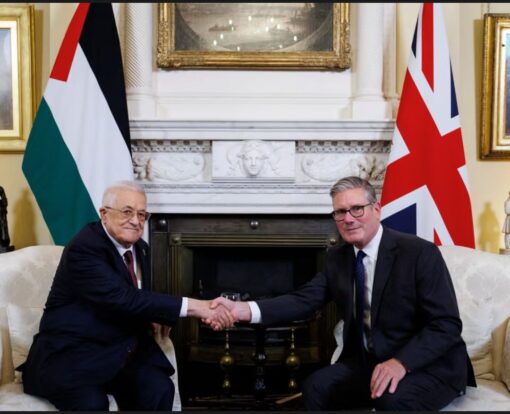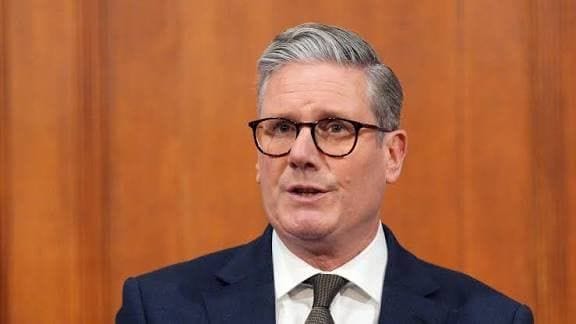In a historic diplomatic move, Prime Minister Keir Starmer confirmed that the UK recognises Palestinian statehood, marking a significant shift in British foreign policy.
Palestinian statehood
This decision, set to be formalised ahead of the 80th session of the United Nations General Assembly, marks a significant departure from the UK’s longstanding policy of withholding recognition until a negotiated peace agreement is reached.
Starmer framed the move as a moral imperative, stating that Palestinian statehood is an “inalienable right” and a necessary step toward a just and lasting peace.
“Today, to revive the hope of peace and a two-state solution, I state clearly – as prime minister of this great country – that the United Kingdom formally recognises the state of Palestine,” he says in a video statement
He emphasised that the UK’s recognition is not a reward for any particular faction but an affirmation of the Palestinian people’s right to self-determination.
Deputy Prime Minister David Lammy echoed this sentiment, clarifying that the recognition is symbolic but crucial in sustaining the viability of a two-state solution.
The UK’s decision comes after Israel failed to meet conditions set by Starmer in July, including a ceasefire in Gaza, increased humanitarian aid access, halting West Bank annexation, and engaging in meaningful peace talks.
The situation in Gaza has deteriorated significantly, with reports of famine and widespread displacement. Starmer had previously warned that without substantial changes, the UK would proceed with recognition.
International reactions have been mixed. While over 140 countries have already recognised Palestine, the UK’s stance carries added significance due to its historical role in the region and its position within the G7 and UN Security Council.

Countries like France, Canada, and Portugal are also expected to announce their recognitions at the upcoming UNGA session.
However, the move has faced criticism from Israel and its allies. Israeli Prime Minister Benjamin Netanyahu dismissed the UK’s recognition as “absurd,” arguing that it rewards terrorism and undermines efforts for peace. U.S. President Donald Trump also expressed disagreement with the UK’s decision, highlighting the strained transatlantic relationship over this issue.
In the West Bank, reactions have been cautiously optimistic. Residents of Ramallah and refugee camps like al-Am’ari welcomed the recognition but expressed skepticism about its practical impact without accompanying measures such as sanctions or a comprehensive peace agreement.

Many Palestinians view the UK’s recognition as a symbolic gesture that falls short of addressing the underlying issues of occupation and displacement.
Critics argue that while symbolic recognition is politically and legally significant, it is insufficient without substantive actions to pressure Israel into compliance with international law and human rights standards.
Analysts suggest that the UK and other Western nations must consider implementing measures like sanctions, arms embargoes, and increased humanitarian aid to Gaza to effect meaningful change.
The UK’s recognition of Palestine is a pivotal moment in the ongoing Israeli-Palestinian conflict. It reflects a growing international consensus on the need for a two-state solution and underscores the urgency of addressing the humanitarian crisis in Gaza.
As the UNGA convenes this week, the world will be watching to see how this diplomatic shift influences the broader Middle East peace process.
Read more news at Swiftreportnow


